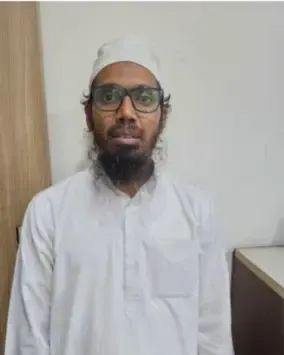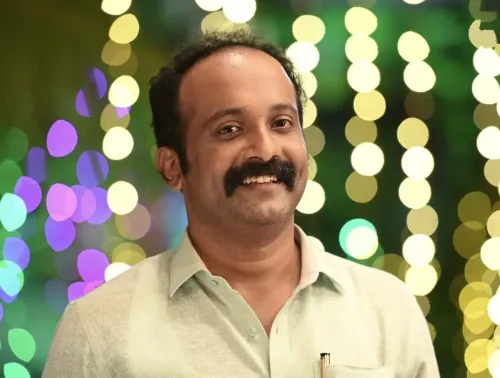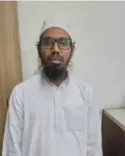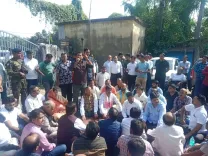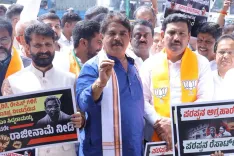Why has the CBI charged J&K DSP and 5 others for custodial torture?
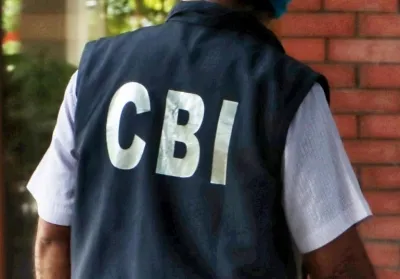
Synopsis
Key Takeaways
- CBI has charged six J&K Police officials for alleged custodial torture.
- Deputy Superintendent Aijaz Ahmad Naiko is among the accused.
- The torture included severe physical abuse over six days.
- The Supreme Court has mandated compensation for the victim.
- This case underscores the urgent need for police accountability.
Srinagar, July 28 (NationPress) The Central Bureau of Investigation (CBI) has officially charged six officials from the Jammu and Kashmir Police for their alleged involvement in the brutal and inhumane custodial torture of a police constable two years ago.
According to a CBI statement, the agency has registered an FIR following directives from the Supreme Court, naming Deputy Superintendent of Police (Dy SP) Aijaz Ahmad Naiko along with five other personnel who were stationed at the Joint Interrogation Centre in Kupwara.
Named alongside Dy SP Naiko are Sub-Inspector Riyaz Ahmad and four additional J&K policemen: Jahangir Ahmad, Imtiyaz Ahmad, Mohammed Younis, and Shakir Ahmad. They have been accused of subjecting constable Khursheed Ahmad Chohan to severe custodial torture over a span of six days.
The constable, who was stationed in Baramulla, received a signal communication on February 17, 2023, instructing him to report to SSP Kupwara for an investigation related to a narcotics case.
Upon his arrival, Khursheed was transferred to the Joint Interrogation Centre, where he endured relentless torture at the hands of Naiko, Riyaz Ahmad, and others, including beatings with iron rods and wooden sticks, as well as electric shocks, according to his wife's complaint, which has become part of the FIR.
As per the complaint, on February 26, 2023, Khursheed suffered horrific mutilation, with his private parts being severed and iron rods inserted repeatedly over the six-day torture period. The ordeal also involved the insertion of red pepper into his rectum and further electric shocks.
The FIR indicates that the then SSP Kupwara, who requested Khursheed's transfer from Baramulla, remained a passive observer during the torture.
While the CBI has not implicated the SSP in the FIR, Khursheed took his case to the Supreme Court after the Jammu and Kashmir High Court dismissed his plea for a CBI investigation.
Upon taking over the case, the apex court criticized the high court for neglecting its duty to safeguard the fundamental rights of a citizen, emphasizing his dignity and right to life.
The court also highlighted the severity of the crimes committed and the potential influence the accused could exert due to their positions as police officials.
In its ruling, the Supreme Court mandated compensation of Rs 50 lakh to Khursheed, recoverable from the implicated officers, and initiated departmental actions following the CBI's investigation.
The Supreme Court dismissed claims from the J&K Union Territory that Khursheed's injuries were self-inflicted as a suicide attempt.
It was acknowledged that Khursheed sustained multiple injuries, including castration, between February 20 and 26, 2023, and he was admitted to SKIMS Hospital at 2:48 PM on February 26, 2023.
The court was appalled to learn that the dismembered body parts were brought to the hospital in a separate plastic bag by a sub-inspector, a detail that deeply troubled the justices.
The police maintained that Khursheed had attempted suicide during the investigation and that his wounds were self-inflicted.
In a harsh judgment, the Supreme Court condemned the unprecedented severity of this case, which involved the barbaric custodial torture and complete mutilation of Khursheed's genitalia, describing it as one of the most egregious acts of police brutality that the state is attempting to conceal.
The medical evidence categorically disproved the notion that such injuries could be self-inflicted. The court stated that the timeline and medical evidence dismantle the suicide theory, exposing the fabricated nature of the respondent's claims and confirming Khursheed's illegal detention from February 20 to February 26, 2023.
The Supreme Court concluded that the medical evidence decisively ruled out any self-inflicted harm, asserting, 'The complete surgical removal of both testicles, extensive injuries to the appellant's palms and soles consistent with custodial torture techniques, and the presence of various foreign particles in the rectum all signify a pattern of prolonged and systematic torture.'
These injuries are medically impossible to be self-inflicted, particularly without fatal hemorrhage or loss of consciousness, which would have occurred had the mutilation been self-administered.

